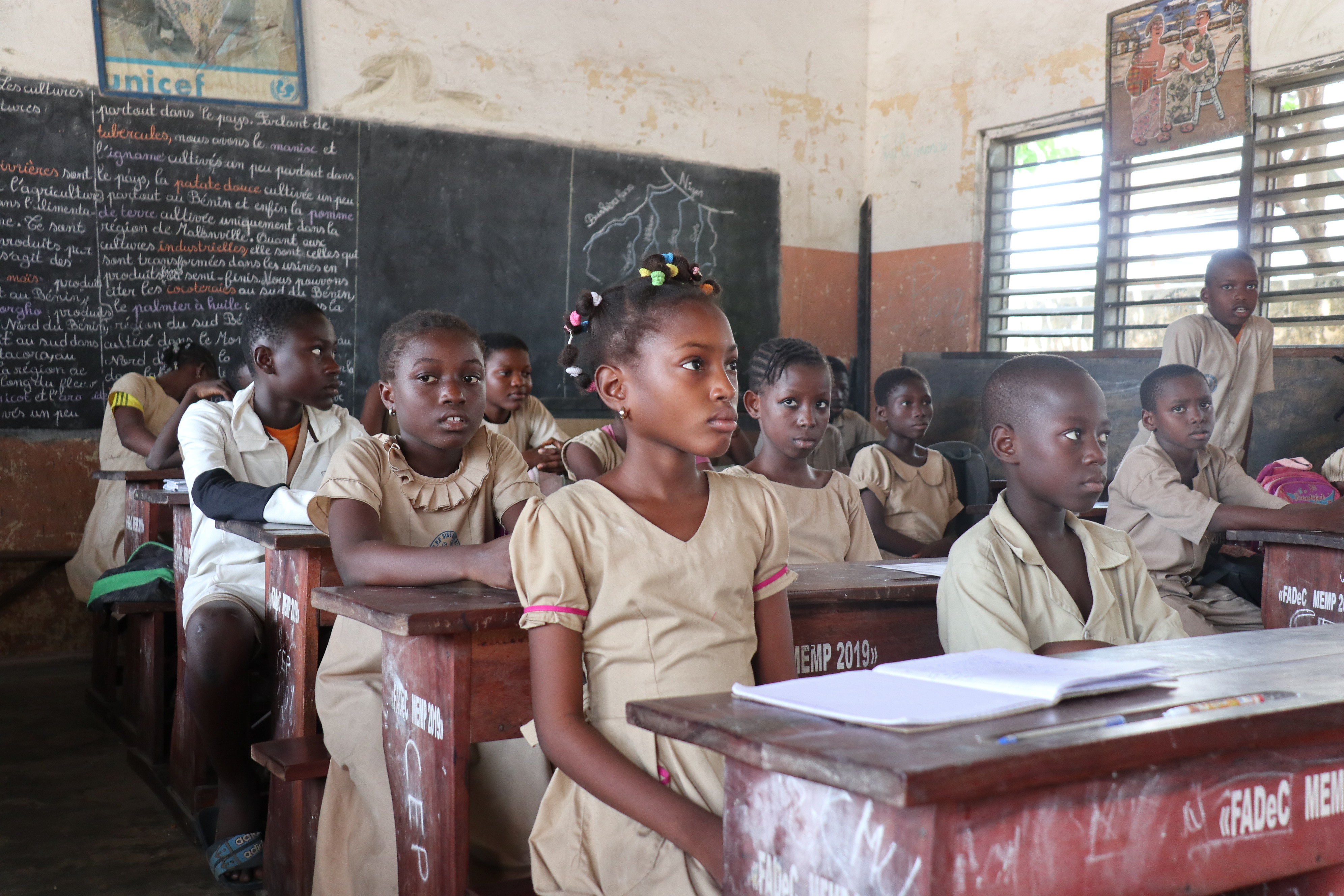Photo credit: Stéphane Grollier
The United Nations has proclaimed 24 January as International Education Day. This is no reason to celebrate this day, given the critical, even dramatic, situation in which education finds itself in the world today. The covid-19 pandemic is to blame, but not only.
On the eve of 21ème In the 21st century, after decades of mobilisation, it would have been reasonable and logical to see the right to education for all become universal. In 2021, more children, girls and boys, should have gone to school, followed a minimum of 12 years of free education, mastered essential knowledge, enriched with social and professional skills in order to become active, responsible and resilient citizens in the face of the growing number of crises. So, yes, major progress has been made since the 2000s, but the objective of quality education for all remains, for the time being, utopian.
A global crisis in education and learning
The COVID-19 pandemic that hit the world exacerbated a global crisis in education and learning that had already been rumbling for several years. By the end of 2019, the picture was already bleak with the number of out-of-school children stagnating at 258 millionWith almost 1 in 6 children unable to read a simple sentence even after several years in schoolThis is the case with global public spending on education falling far short of the minimum recommended by the United Nations for any progress.
COVID-19 as an aggravating factor
By the end of 2020, after at least weeks and months of school closures and lockdowns in almost every country, after a health crisis that has become a global, multi-sectoral disaster in a matter of weeks, it is not surprising that the state of education around the world has deteriorated further. The impacts of the health crisis on education have been fierce in the short and medium term, and the consequences are likely to last for decades: during these months of confinement, more than 500 million children have been deprived of any opportunity to studyIn France alone, the National Productivity Council estimates that 14% of students' skills are lost as a result of the six-week lockdown. In France alone, the National Productivity Council estimates that 14% of students' skills are lost as a result of the six-week lockdown and stresses the long-term impact this loss will have on the French economy. In many other countries, the percentage of learning losses will clearly be higher. It is now estimated that 24 million children are unlikely to return to school after these closuresThe number is likely to increase. In addition, the global economic crisis is likely to lead to a drastic reduction in national and international education budgets for years to come..
The goal of guaranteed education for all is slipping away
The World Bank estimates thathe pandemic will increase the pre-crisis funding gap of $148 million needed to achieve quality education for all by 2030 by one third. The objective which seemed already compromised before COVID-19, now seems utopian, thus jeopardising the future of entire generations deprived of the knowledge and skills essential to fit into and adapt to a constantly changing world. Unless, of course, measures and funding on an unprecedented scale are finally allocated to education. Developing countries, as a result of the economic crisis, may not have the means to allocate more funds to education. The major donor countries, as providers of development aid, will undoubtedly have an essential role to play in this crisis and, if they respect their initial commitments (to allocate 0.7% of GDP to development aid), will be able to facilitate the reconstruction of an inclusive, qualitative and resilient education system, capable of dealing with all types of crises when they arise.
2021, a year full of promise?
The year 2021 is favourable with the holding of major events where education will inevitably be on the agenda: the G7 summit organised this year by the United Kingdom, which has already announced its desire to make education a priority, the Generation Equality Forum dedicated to the empowerment of girls and the fight against gender inequality, which was supposed to take place in France in 2020 and has been postponed, and finally the two refinancing conferences of two major international organisations (Global Partnership for Education and Education Cannot Wait) that support the improvement or reconstruction of education systems in developing countries and crisis situations. There will be plenty of opportunities to take action or invest heavily in education, but will international actors be up to the task?
Much talk but little commitment
While almost all countries have stated their commitment to prioritise education, it must be recognised that all countries, even the most developed, have been hit hard by the crisis and have had to face massive unforeseen expenditure. It is likely that some will prioritise other sectors than education and reduce their commitments to development aid. France, through its solidarity and development bill presented_ with much delay_ last December to the Council of MinistersFinally, the bill only presents France's commitments before the end of the five-year period but does not define any budgetary trajectory to reach the 0.7% of French GNI by 2025. As far as education is concerned, the bill certainly reaffirms its importance and its positive impact on sustainable development, but gives no visibility on France's future commitments. However, without major, rapid and collective investment, there is no longer any doubt that millions of children will remain forever excluded from education and will see their future sacrificed.






